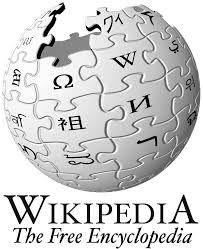Defining financial independence
Wikipedia now makes the distinction between retirement and financial independence, or what I like to call findependence, crystal clear.
Advertisement
Wikipedia now makes the distinction between retirement and financial independence, or what I like to call findependence, crystal clear.
 The online encyclopedia Wikipedia contains an excellent entry on financial independence, which you can find here. Off the top it says financial independence is a term that describes “the state of having sufficient personal wealth to live, without having to work actively for basic necessities.”
The distinction this blog often makes between findependence (simply a contraction I coined that means financial independence) and retirement becomes crystal clear in this Wikipedia sentence: “It does not matter how old or young someone is or how much money they have or make. If they can generate enough money to meet their needs from sources other than their primary occupation, then they have achieved financial independence.”
Exactly! It goes on to point out that if you’re 25 years old, with expenses of $100 a month and sufficient financial or other assets to generate $101 a month, then “they have achieved financial independence, and they are now free to do things that they enjoy without having to worry as much.”
The online encyclopedia Wikipedia contains an excellent entry on financial independence, which you can find here. Off the top it says financial independence is a term that describes “the state of having sufficient personal wealth to live, without having to work actively for basic necessities.”
The distinction this blog often makes between findependence (simply a contraction I coined that means financial independence) and retirement becomes crystal clear in this Wikipedia sentence: “It does not matter how old or young someone is or how much money they have or make. If they can generate enough money to meet their needs from sources other than their primary occupation, then they have achieved financial independence.”
Exactly! It goes on to point out that if you’re 25 years old, with expenses of $100 a month and sufficient financial or other assets to generate $101 a month, then “they have achieved financial independence, and they are now free to do things that they enjoy without having to worry as much.”
Share this article Share on Facebook Share on Twitter Share on Linkedin Share on Reddit Share on Email
I just like the helpful information you provide in your articles